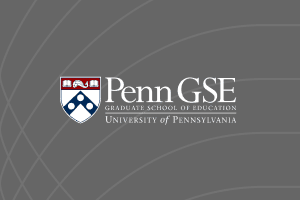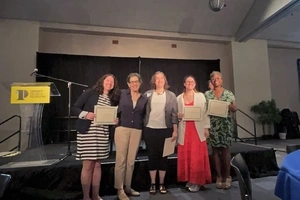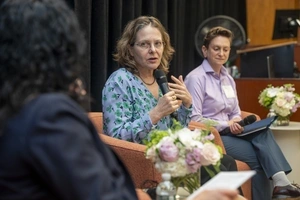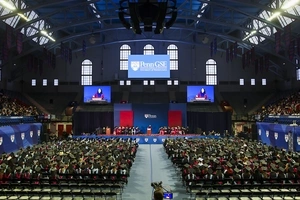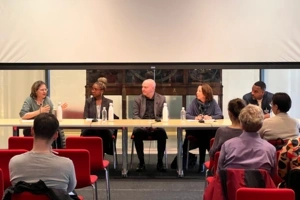Faculty Expert
As school districts nationwide struggle to attract qualified educators, researchers from Penn GSE and other institutions are working toward solutions to bolster professional training and build infrastructure to support current and future educators.
With that shared goal, education research experts gathered in Philadelphia in early December at Penn GSE for the Research Designs and Measurement for Teacher Education Conference.
The conference was hosted by Penn GSE’s Collaboratory for Teaching and Teacher Education and brought together 44 researchers.
The Collaboratory is dedicated to designing, implementing, and studying experimental approaches to teacher education. Collaboratory Director and Associate Professor Sarah Kavanagh said the conference focused on ways to support teacher training and create actionable practices.
"We are asking how do we, as a research community, start to build the evidence base for policymakers so when people enter the field, they are prepared"
-Associate Professor Sarah Kavanagh
During extreme teacher shortages, Kavanagh said it’s more important than ever to establish standards for teacher training and evaluation and support educators with mentorship and professional development.
According to National Center of Education Statistics data, about 8 in 10 American public schools reported difficulty hiring new teachers for the 2023-24 school year. One of the most significant barriers is the need for more qualified applicants, a problem reported by 66 percent of schools.
Kavanagh noted that some states and districts have reduced hiring requirements, including reduced certification, preparation, and coursework standards to attract new teachers, which could have long-term negative consequences on K–12 education.
“We have to figure out how to solve this problem in a way that doesn’t degrade the teaching profession over the long haul,” Kavanagh said.
Researchers shared their work at the conference to support administrators, teachers, and policymakers.
“If we want to create an infrastructure that supports people to enter the teaching profession in numbers we need and with preparation to do a strong job, we need to build out an evidence base about what teachers need to do a great job,” Kavanagh said.
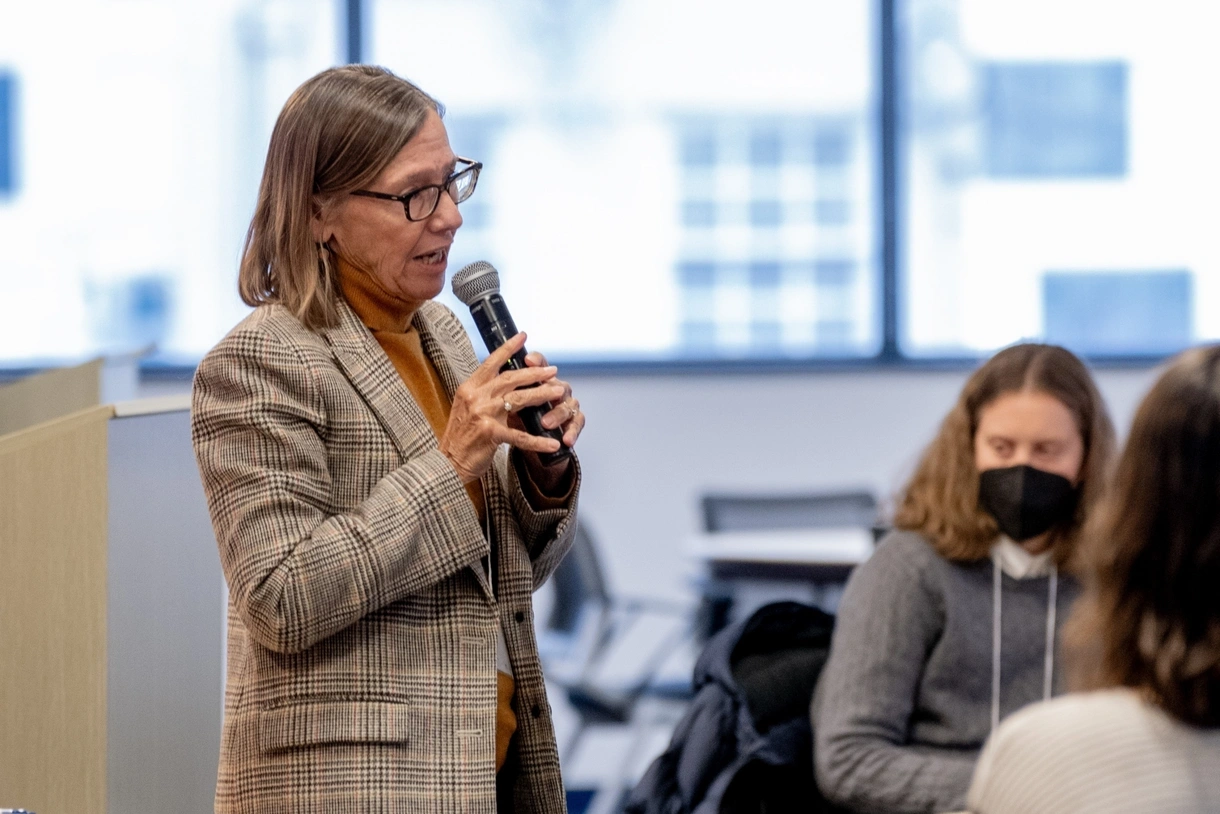
While some studies are in the early stages, several presenters focused on mentorship to strengthen new teachers and build leadership for veteran educators. Among the topics, Kavanagh said researchers are investigating how to create the most effective mentorship relationships, how strong teachers can build mentoring skills, and how pre-professional teachers are best matched with mentors.
Attendees also discussed measures teachers use to make robust claims about teacher evaluation and professional development.
As part of a panel discussion called “Issues of Measurement for both Researchers and Teacher Educators,” Drew Gitomer, the Rose & Nicholas Demarzo Chair in Education at Rutgers University’s Graduate School of Education, and Julie Cohen, Charles S. Robb Associate Professor at the University of Virginia’s School of Education and Human Development, discussed the complexities of the edTPA teacher performance evaluations.
Kavanagh said Gitomer presented his work on problems with the edTPA data published by Pearson, a for-profit education publishing company that administers the testing.
“It raises questions about outcomes to track and in the context of for-profit organizations that host these things, how do we ensure policymakers and teacher ed programs are being fed accurate data to make decisions,” Kavanagh noted.
As the event concluded, attendees committed to collaborating on future work to aid state policymakers and teacher educators. Kavanagh said events like the Research Designs and Measurement for Teacher Education Conference are central to establishing best practices and creating sustainable solutions.
“We’re trying to host conversations with educators, policymakers, and researchers to strengthen the teaching profession over time so teaching stays a robust profession that recruits strong people and has the infrastructure to support, compensate, and invest in teachers,” she said.
Media Inquiries
Penn GSE Communications is here to help reporters connect with the education experts they need.


